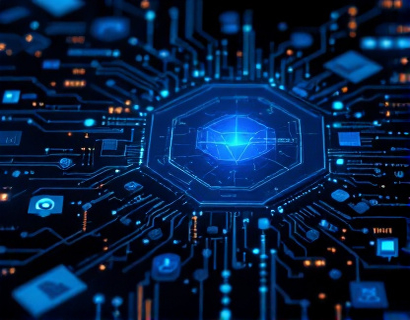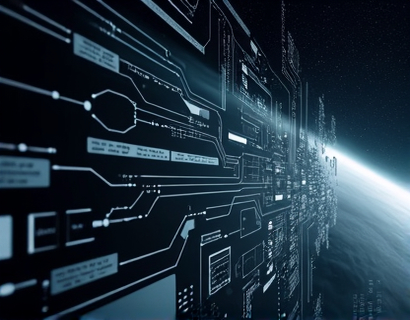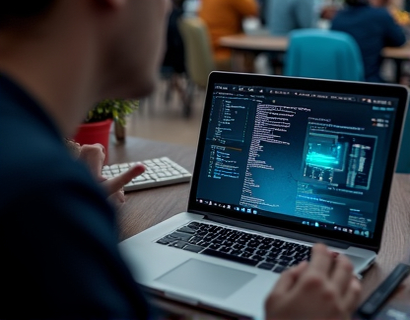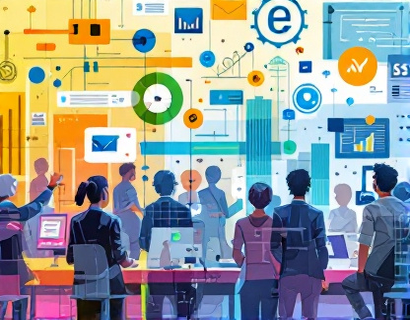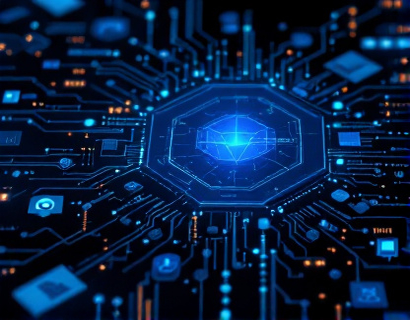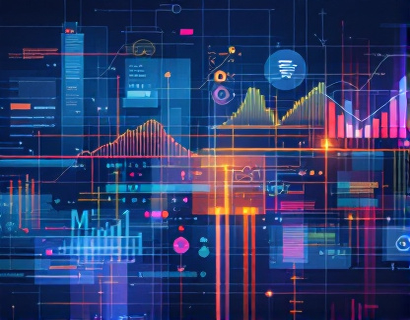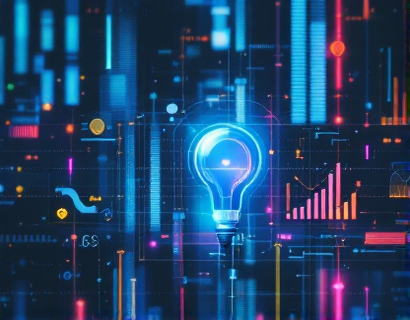Decentralized Productivity: Unleashing the Potential of AI and Crypto Integration for Next-Gen Business Solutions
The intersection of artificial intelligence and cryptocurrency is giving rise to a new era of decentralized productivity tools. This fusion is not just a technological curiosity but a transformative force that is redefining how businesses operate and collaborate in the digital space. As we delve into this topic, it's essential to understand the foundational elements that make this integration possible and the profound impact it has on various industries.
The concept of decentralized productivity hinges on the principles of blockchain technology, which provides a secure, transparent, and tamper-proof environment for transactions and data management. When combined with AI, these platforms can automate complex tasks, analyze vast amounts of data, and provide insights that were previously unattainable. This synergy creates a powerful ecosystem where businesses can enhance their operational efficiency, foster innovation, and maintain a competitive edge.
Understanding Decentralized Productivity
Decentralized productivity refers to the use of decentralized technologies to improve and streamline business processes. Unlike traditional centralized systems where control and data storage are concentrated in a single entity, decentralized systems distribute these functions across a network of nodes. This distribution ensures that no single point of failure exists, enhancing security and reliability.
In the context of AI and cryptocurrency, decentralized productivity tools leverage blockchain's immutable ledger to ensure that all transactions and data exchanges are recorded transparently and securely. AI algorithms can process and analyze this data in real-time, providing actionable insights and automating routine tasks. This combination not only increases efficiency but also reduces the risk of errors and fraud.
AI in Decentralized Systems
AI plays a crucial role in decentralized productivity by enabling intelligent automation and decision-making. Machine learning models can be deployed on blockchain networks to perform tasks such as predictive analytics, natural language processing, and image recognition. These capabilities are particularly valuable in industries like finance, supply chain management, and healthcare, where data-driven decisions are critical.
For instance, in the finance sector, AI-powered smart contracts can execute transactions based on predefined conditions, eliminating the need for intermediaries and reducing transaction costs. In supply chain management, AI can track the movement of goods in real-time, predict demand, and optimize inventory levels, all while ensuring transparency and traceability through the blockchain.
Cryptocurrency and Decentralized Economies
Cryptocurrency is the digital or virtual currency that underpins many decentralized systems. It operates on blockchain technology, which ensures secure and transparent transactions without the need for central authorities. This decentralized nature of cryptocurrency aligns perfectly with the principles of decentralized productivity, creating a synergistic relationship that enhances trust and efficiency in business operations.
Beyond mere transactional use, cryptocurrencies can serve as a medium of exchange within decentralized platforms, facilitating micropayments and incentivizing participation. For example, in decentralized content creation platforms, creators can receive direct payments from consumers in cryptocurrency, bypassing traditional intermediaries and ensuring fair compensation.
Enhancing Collaboration and Productivity
One of the most significant benefits of integrating AI and cryptocurrency in decentralized productivity tools is the enhancement of collaboration. Decentralized platforms can connect individuals and organizations across the globe, fostering a collaborative environment that transcends geographical boundaries. AI-driven tools can facilitate seamless communication, project management, and task allocation, ensuring that teams work efficiently and effectively.
Consider a decentralized project management platform where AI algorithms analyze team performance, suggest optimal work schedules, and identify potential bottlenecks. All interactions and data are recorded on a blockchain, providing a transparent and auditable trail. This setup not only boosts productivity but also builds trust among team members, as everyone has access to the same information.
Case Studies and Real-World Applications
Several initiatives and platforms are already leveraging the power of AI and cryptocurrency to create decentralized productivity solutions. One notable example is a decentralized cloud storage service that uses AI to optimize data storage and retrieval. The platform employs blockchain to ensure data integrity and security, while AI algorithms manage storage allocation based on usage patterns and demand.
Another example is a decentralized marketplaces for freelance services, where AI matches clients with the most suitable professionals based on skill sets and project requirements. Transactions are conducted using cryptocurrency, ensuring secure and transparent payments. The use of smart contracts automates payment processes, reducing the need for manual interventions and disputes.
Challenges and Considerations
While the potential of AI and cryptocurrency in decentralized productivity is immense, there are several challenges that need to be addressed. Scalability remains a significant issue, as blockchain networks can struggle to handle high volumes of transactions efficiently. However, ongoing developments in blockchain technology, such as layer 2 solutions and sharding, are addressing these concerns.
Regulatory uncertainty is another factor that businesses must navigate. As decentralized technologies evolve, regulatory frameworks are still catching up. It's crucial for organizations to stay informed about legal requirements and ensure compliance to avoid potential risks.
Future Outlook
The future of decentralized productivity is bright, with continuous advancements in AI and blockchain technology. As these technologies mature, we can expect more sophisticated and user-friendly tools that further enhance business operations. The integration of AI with decentralized systems will likely lead to the development of autonomous organizations, where AI-driven processes and decision-making are fully integrated into the fabric of the business.
Moreover, the adoption of decentralized productivity tools is expected to grow across various industries, from manufacturing to education. The benefits of increased transparency, security, and efficiency will drive more organizations to embrace these innovative solutions. As the ecosystem expands, we can anticipate the emergence of new business models and opportunities that were previously unimaginable.
In conclusion, the convergence of AI and cryptocurrency in decentralized productivity represents a paradigm shift in how businesses operate. By harnessing the power of these technologies, organizations can achieve unprecedented levels of efficiency, collaboration, and innovation. As tech innovators and early adopters, embracing this transformation is not just an option but a necessity for staying ahead in the digital age.








